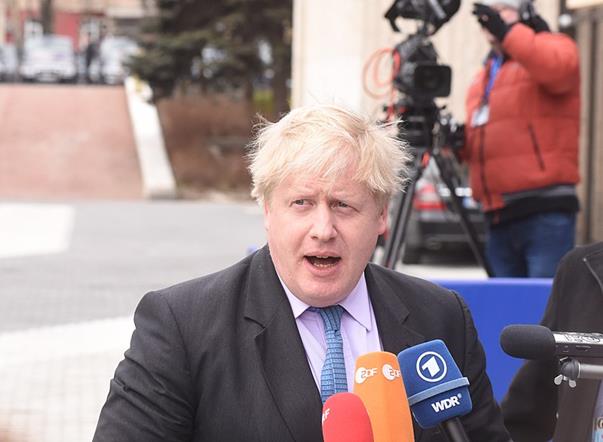“Boris” is the only British politician universally known by his first name. He was Foreign Secretary, until he jumped ship from Theresa May’s Ship of Fools and is now on the Tory backbenches. Since May’s political life is passing peacefully to its close he is much talked of as a likely successor. What are his chances?
They are good but not overwhelming. The Party activists in the sticks love him, but Conservative MPs do not. There is a simple reason: Boris Johnson is a brilliant man, and his colleagues are largely, to adopt a safe formulation, unbrilliant. Envy is a mighty force in politics. Boris has a way with words, for which he is rewarded £275,000 a year for his Monday article in the Daily Telegraph, a bully pulpit. From his column last week, I cull (of the Withdrawal Agreement) “this 175-page backstop is a great steel trap that is about to clamp its jaws around our hind limbs and prevent our escape.”
Theresa May doesn’t write or speak like that. Of an earlier Boris flourish, she said through gritted teeth, “I have to say [she often ‘has to say’] that that choice of language is inappropriate . . . I think using language like that was not right and is not language I would ever have used.” May never uses language that has not passed through untold millions of hands and is well run in by the time it gets to her. Her defense of her EU policy consists of a few lines she has memorized and do not need a memory stick. May’s life as Prime Minister is all but over, and there are only two questions left: When? and Who?
Boris, said one observer, “strikes me as a serious man pretending to be unserious.” I think that an astute judgment. The eccentricity of dress and discourse is that of an individualist, not a team player, but his achievements are on record. He was Mayor of London for two terms (a position now held by a Labour Muslim) and is generally thought of as discharging his duties decently well. He has written successful books, of which I would urge readers to start with The Dream of Rome and its opening sentence: “No one knows the exact moment when Publius Quinctilius Varus realized what a colossal idiot he had been, but when the barbarians on either side of him started uttering their war cry we must assume that the penny finally dropped.” Boris has done the research and has inspected the location of the 220-metre strip of land at Kalkriese where Varus and his legions were ambushed. And in his analysis of that moment in history he points to the modern division between Euro-philes and Euro-sceptics, those who want to create a single unit of disparate nations and those who prefer to keep their national traditions. “It is astonishing how closely this debate was echoed in the ancient world.”
Boris feels the attraction of the European ideal—one of his recent ancestors was a Turkish politician—but is now committed to opposing the EU, and its centripetal pull to Theresa May.
The other book of his to consider is The Churchill Factor. As everybody says, he fancies himself in the Churchill role, but his coverage of the great man is superbly readable. When Churchill was sent out to rule on the Middle East arrangements after the Great War, Boris judged that “we sold the same camel three times.” I would classify The Churchill Factor as light-weight, not in any sense of disparagement but as with boxing, a matter of weight (just as I would class Andrew Roberts’s Churchill: Walking With Destiny as a light-heavyweight). The Churchill book has a role in the coming struggle for power. Boris sees himself in the light of Churchill in 1940, while the Europhile hard-liners take up the tattered garment of Lord Halifax. The recent film Darkest Hour quite fairly makes the Halifax/Churchill debate the key to British history, a debate still with us. History never stops.
The campaign to Stop Boris is now well advanced. In a leadership contest, the last two candidates, the finalists, go to the Party at large to vote on. If Boris gets on to that short list, his opponent is dead. Can he be kept off that list? I hope Boris makes it, for a reason that another of that name, Dr Johnson, gave in his elegy on a friend, David Garrick. His death “has eclipsed the gaiety of nations and impoverished the public stock of harmless pleasure.” Boris would revive the spirits of the British people.

Leave a Reply